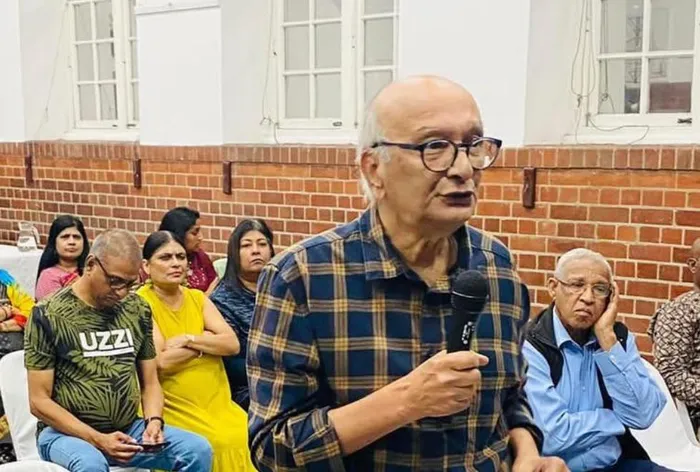A life of service: Remembering Sunny Girja Singh

Sunny Singh died on Thursday at the age of 86.
Image: Facebook/1860 Heritage Centre
TRIBUTES have been pouring in for struggle stalwart Sunny Girja Singh, who died on Thursday.
Singh was 85 years old.
A dedicated activist and freedom fighter, Singh fulfilled a multi-faceted role in the liberation struggle. His service included 10 years on Robben Island, work with Umkhonto weSizwe (MK) in Angola, Mozambique and East Germany, and serving as head of the ANC’s mission in the Netherlands.
In a tribute to Singh, filmmaker Anant Singh said Singh led a life of service and was committed to the achievement of freedom and democracy in South Africa.
"He was the voice of the people. We salute Sunny for his resolute commitment to South Africa’s freedom. His humility, integrity and honesty throughout his life is an inspiration to us all," said Singh.
ANC NEC member Fawzia Peer said: "Sunny Singh stood firmly for justice, equality and a truly democratic, non-racial South Africa. Inspired by progressive leaders and guided by the principles of the Freedom Charter, he lived a life committed to building a fair and humane society. Aluta Continua. Rest in peace, Comrade."
In a Facebook post, the 1860 Heritage Centre wrote: "Dear Comrades and friends. It is with deep sadness that we advise that Cde Sunny Singh has passed away. We wish Urmilla and the family all strength at this difficult time. We will await further announcements by the family."
Widely known for putting others before himself and placing the nation above all, Singh devoted his life to justice, equality and a democratic, non-racial South Africa, guided by the principles of the Freedom Charter.
Born in 1939 in Cato Manor, Durban, Singh was raised in a working-class family and faced early educational challenges. His political awakening was sparked by the Group Areas Act, the 1956 Treason Trial, and Nelson Mandela’s arrest. He later joined the Natal Indian Youth Congress and the Natal Indian Congress, supporting the liberation struggle even while working under apartheid restrictions.
In 1962, Singh joined Umkhonto weSizwe (MK), participating in key sabotage operations. Arrested in 1963, he was sentenced to 10 years on Robben Island, where he endured harsh conditions while remaining committed to political education and self-study.
After his release in 1974, Singh was placed under house arrest but continued organising trade unions, community clinics and underground ANC networks. Forced into exile in 1976, he trained in guerrilla warfare, held leadership roles within MK, and supported ANC operations across Mozambique, Angola and Zambia, including his involvement in Operation Vula.
Singh also represented the ANC in the Netherlands, where he facilitated Nelson Mandela’s first visit in 1990 and helped secure international support for South Africa’s liberation. Returning home in 1991, he contributed to youth education and participated in the Codesa negotiations that shaped South Africa’s new constitution. He later served in SAPS Crime Intelligence until his retirement in 2008.
Remembered for his unwavering ethics, leadership and commitment to his community, Singh’s legacy endures through the Monty Naicker Foundation and the countless lives he inspired.
Related Topics: